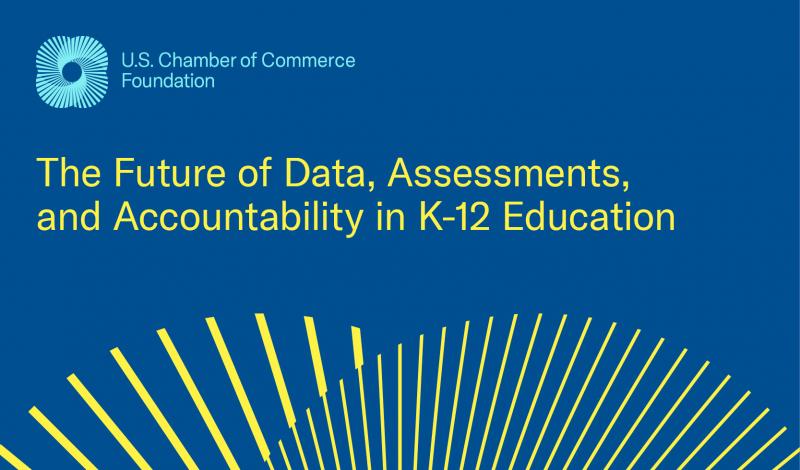The U.S. Chamber of Commerce Foundation is excited to offer an opportunity for creative thinkers to help us envision the future of data in public education. How should student outcomes be measured, and how should we ensure the education system is held accountable for student learning?
We are hosting the Future of Data in K-12 Education Design Challenge, seeking thoughtful, innovative proposals on how to evolve and improve public K-12 school assessment and accountability in the United States. Experts, practitioners, and advocates are invited to submit their ideas for improving federal and state policies and/or practices, and help us understand what you believe these changes will mean for students in classrooms across the country. These proposals will be reviewed by the U.S. Chamber Foundation and the Future of Data Working Group. Top proposals will be publicized and recognized through an in-person event, and cash prizes will be awarded to both the top 20 ($5,000) and top six ($30,000).
Proposals should include:
A description of the problem(s) with the current assessment and accountability paradigm that the Proposal is trying to address;
Objectives for policy change (i.e., at a high level, what requirements, guidance, and/or approaches to assessment and accountability will change?);
Desired outcome of the policy change (i.e., what does the Entrant hope will happen if the described policy objectives are achieved?);
Description of how the policy change will result in students who are better prepared for college, careers, and civic participation than in the current education system, with a focus on students who the system has historically underserved; and
An explanation of known tradeoffs, and potential negative consequences, as well as rationale for the approach selected.
An explanation of how the proposal adheres to the Chamber Foundation Future of Data Working Group's foundational principles.
Entrants should submit their proposal to FutureofData@USChamber.com before 11:59 pm EST on February 24, 2023. We ask that submissions not exceed 10 pages typed. For more information on submission parameters and how to submit proposals, please see the below Design Challenge Rules. Additionally, for any interested entrants who want a refresher on current federal assessment and accountability requirements, please see the below two-pager.
Read the Design Challenge Rules
Current Assessment and Accountability Requirements
